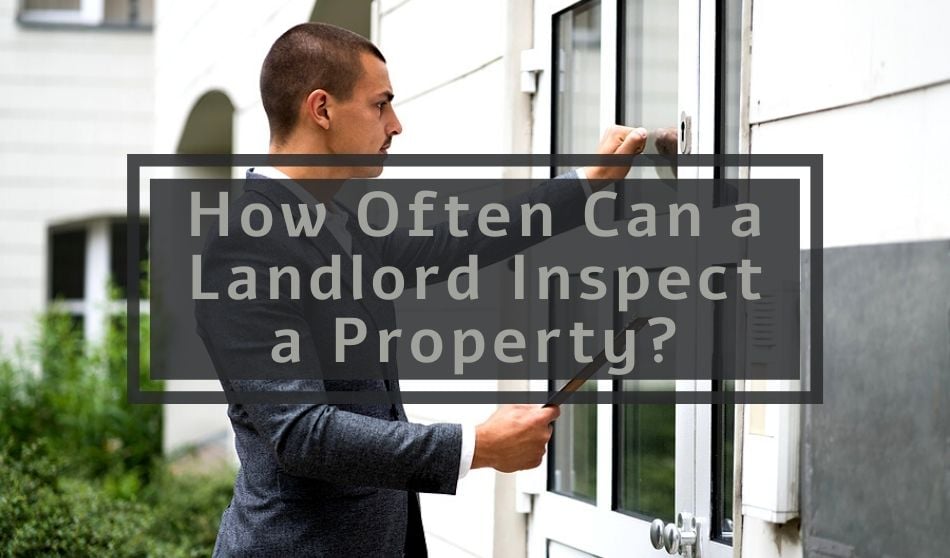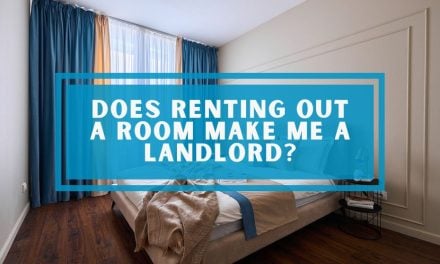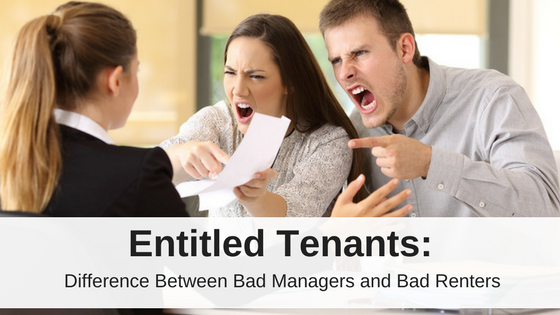There is a fine line between being a concerned landlord and a nosy intruder. How often can a landlord inspect a property? Unfortunately, there isn’t a set number. Property inspection frequency all comes down to three elements: rental inspection purpose, landlord professionalism, and tenant privacy.
Rental Inspection Purpose
The primary purposes to inspect a property would fall under two categories: protecting the property investment and ensuring resident health and safety. With a focus on these two important elements, inspections fall under these subcategories:
- Customary inspections
- Move in inspection
- Move out inspection (which may include a pre-move-out inspection)
- Maintenance and safety
- Routine home inspections (yearly, seasonally, or quarterly)
- Safety inspection (smoke alarms, check/fill fire extinguishers)
- Pest control and infestations
There may be other reasons a landlord may enter a property for non-inspection purposes such as snow removal, repair of a broken water heater or plumbing issue, a natural disaster, or an extended tenant absence.
Just as there are state laws regarding the amount of notification before entering a property or home for an inspection, check your state regulations and statutes for notification requirements for non-inspection scenarios as well.
Professionalism
Friendliness is a core competency in property management but even your closest friends may not appreciate a visit unannounced. Tenants, no matter how friendly or close the relationship, should always be treated with the utmost professionalism; especially when it comes to inspections.
Adhere to a code of professionalism in regards to home inspection frequency. Include provisions in the lease for inspection timing and notification. When welcoming your new resident and signing the lease, be sure to discuss property inspection frequency and the types of inspections scheduled.
Abide by the lease and state regulations at all times. Give ample notification, more than required if possible. Some states have no statute on the amount of notification and others require up to 48 hours. Typically the average amount of time required for landlord’s to enter a property for a non-emergency reason is a 24 hour notice.
With care, concern, and empathy see inspections from the perspective of the resident. Then, be prepared to inspect, document, and discuss concerns in a professional manner. Follow up in writing, note the positive, build report and relationship
Privacy and Quiet Enjoyment
Residents understand that although they are at home in your house, the house does not belong to them and therefore have an obligation to allow you, their landlord, access. They can not simply refuse entry nor change locks without permission (and/or offering the landlord a copy of the new keys).
But that’s only one side of the equation. There is a covenant between the tenant and landlord that the tenant will be allowed privacy and an implied warranty of quiet enjoyment. Landlords can break that covenant by unduly disturbing the renter.
In the day-to-day business of the rental industry, it’s easy to lose focus on the people when attempting to maximize and protect a property investment. In that, landlords and property managers can oft forget that included in a rental payment is the tenants’ right to privacy and quiet enjoyment of the home.
Some tenants may feel multiple inspections are excessive. But how often can a landlord inspect a property before it becomes excessive? Excessive is in the eye of the beholder. If you’ve received a move-out notice and need to show the unit to a potential renter, perhaps daily showings might be a bit much. But a few times a week is reasonable. The key here is to be mindful of the tenants’ right to quiet enjoyment of the home and freedom from harassment.
Not only do state and local laws apply but social decorum and the golden rule might be well to be remembered: Do to others as you’d have them do to you.
Can a Landlord Do That?
The following questions present scenarios for whether or not a landlord can legally enter a rental property.
Can a landlord conduct a drive-by inspection (by walking, car, bicycle) as often as they like?
Yes, a landlord can conduct drive-by inspections as often as they like as long as they are not harassing or disturbing the residents.
Can a landlord conduct random property inspections?
No, a landlord cannot conduct random property inspections without giving proper notice.
Can a landlord schedule multiple inspections a year?
Yes, a landlord can schedule multiple inspections each year, including quarterly, semi-annually, seasonally, or annually.
Can a landlord “pop by” without notice?
No, unless specifically allowed by state regulation for circumstances such as an emergency, a landlord may not ‘pop by’ without notice.
Can a landlord enter a property in an emergency?
Yes, most state laws allow a landlord to enter a property without notice in order to address an emergency.
Can a landlord conduct excessive property inspections outside the provisions of the law?
No, a landlord may not conduct excessive inspections unless legally allowed by federal, state, and local regulations.
Can a Tenant Do That?
The following questions provide answers to situations that relate to tenants’ rights in regard to rental property inspections.
Can a tenant speak to the housing authority and legal council to confirm the terms of the lease agreement and verify state and local regulations regarding property inspections and landlord entry?
Yes, a tenant is allowed to work with their local housing authority and seek legal council to confirm their housing rights and the legality of their rental lease, including property inspections and landlord entry.
Can a tenant change the locks without either permission or giving a key to the new lock to their landlords?
No, it is illegal for a tenant to change the locks without permission from the landlord or property manager.
Can a tenant go on an extended absence (travel, hospitalization, etc.)?
Yes, a tenant may go on an extended absence but may be required to inform their landlord and allow landlord access if applicable by state/local statutes.
Can a tenant refuse entry to a landlord that has given the appropriate notification?
No, a tenant cannot refuse entry to a landlord that has followed the legal requirements to provide the appropriate notification.
Can a tenant refuse entry to a landlord that has not given appropriate notification?
Yes, a tenant may refuse entry to a landlord that has not given appropriate notification, except in the case of an emergency as outlined by state and local laws.
Can a tenant that requested maintenance or repair then refuse entry if the landlord complies with state notification regulations?
No, a tenant must allow landlord entry for requested maintenance and repairs as long as the landlord complies with notification regulations.
Inspection Wrap-Up
- Check with your state and local regulations.
- Document inspection provisions in the lease or rental agreement.
- Abide by those terms with proper notification.
- Remember the purpose of the visit.
- Consider using a property management software that integrates with an inspection app to raise the level of inspection efficiency and professionalism.
- Keep interactions with residents appropriately friendly with a professional demeanor.
- Be the resource that makes a house a home by providing a safe and well-maintained property for your residence.
The question then isn’t how often can a landlord inspect a property, but rather how does a landlord go about conducting appropriate inspections within regulations to the benefit of both parties.







Heather, you wrote an excellent article! According to the law, the landlord has certain rights to check his property that are explicitly mentioned in the leasing agreement. However, whether it is a routine inspection or a necessary property management visit, landlords must respect tenants’ privacy and comply with state laws.
Thank you so much for your kind feedback, George! I especially appreciate that you took time out to share your professional insights with our readers today.
Doesn’t seem like she cares all that much. Let’s see if she publishes my comment about inspections being UNLAWFUL California.
and when the property manager schedules an inspection 8 to 6 over 3 days time. the office doesnt open til 10. and no one shows up over that 3 days time. whats my obligation as a tenant moving forward with inspections? Can i put my foot down and ask them for a specific day and not one of 3 days?
That sounds frustrating Luanne. Inspection notification timeframe is specific to each state and local area so I would suggest contacting your local housing authority to discuss the notices you’ve been given and find out your tenant rights in your area.
Thank you for giving me this information.
You’re welcome, glad it was useful.
Thank you for being so helpful!
Absolutely! It’s always our pleasure to provide helpful information and resources.
Why the heck would a landloard be allowed in someones home 4 times a year. Each time expectine the tenant to clean the toilet with a tooth brush, Thats clean the house for a week. I raise 4 kids here all throughh school Tell me I can clean the house from morning to night every day. Well make me home less. .
Hi Kim,
Most landlords preform maintenance and safety checks to look for issues that tenants may not notice or know to report. Since the landlord is responsible for keeping a safe and habitable property, some landlords will complete these inspections more frequently than others. Since landlords need to preform seasonal or quarterly maintenance, that is often a convenient time to inspect the property. It is normal for landlords to verify that the property is well-cared for in order to mitigate pest infestations, mildew growth, ect. However, most landlords are simply checking for general care and not expecting a pristine home. This article about preparing for a maintenance visit may help offer general guidelines: How to Prep for a Maintenance Visit Your lease should also outline any specific expectations your landlord may have for the property.
NO. Routine inspections, or ANY INSPECTIONS, are -NOT- allowed or legal in CALIFORNIA. ZERO INSPECTIONS ALLOWED. A landlord can be sued for breaching the tenant’s right to quiet enjoyment, among other things, and can be subject to a CLASS ACTION LAWSUIT with PUNITIVE damages assessed against the landlord/owner.
We left town for family for several months.
We also turned off utilities. Is this OK? We are tenants.
Hi William, your lease agreement should have language regarding extended leave from the property. In many cases it can break the lease agreement to leave for an extended amount of time without notifying your landlord or property manager; this is because an unoccupied property is at a higher risk of undetected damage as well as criminal activity (such as burglary or vandalism). Be sure to check in with your landlord or property manager and reference your lease agreement for any language surrounding leaving the property vacant and/or turning off utilities.